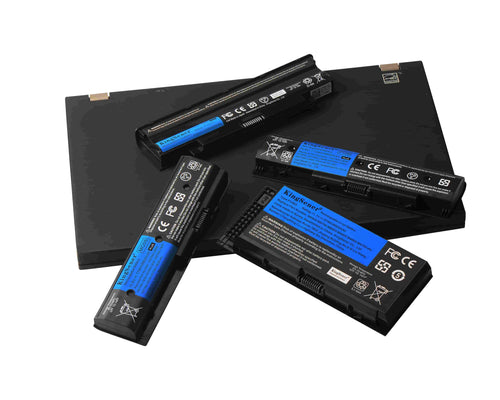How to solve the hazards of waste lithium batteries?

1.What is Lithium Battery
Lithium-ion batteries, used in laptops and smartphones, will be at the heart of electric vehicles and many other products, and are currently the energy storage solution of choice for manufacturers of electric vehicles, phones, tablets and laptops.
Lithium batteries also need to help power the world's grid, as renewable energy sources such as solar and wind still cannot provide energy 24 hours a day.
It's easy to see why: they're efficient chargers, easy to handle, and have a higher energy density than alkaline batteries.
In order to protect the ecological environment of the earth, everyone has the responsibility to properly dispose of waste batteries. This article will give you some suggestions.

Kingsener HS04 HS03 Battery for HP 240 245 246 250 G4 G5 Series For HP Notebook 14 Series Pavilion 15-AF027CL
95% of the batteries sold on www.batterymall.com are environmentally friendly and efficient lithium batteries.
2.The dangers of discarding batteries
In fact, poor battery performance is the bane of our existence - especially when we run out of power at a critical moment, so more and more batteries are being thrown away.
The ordinary dry batteries we usually use include acid-base batteries and zinc-manganese batteries, all of which contain a small amount of heavy metals such as mercury, manganese, chromium, and lead. Among them, the lithium salt lithium hexafluorophosphate is the most harmful to the human body in the lithium ion battery electrolyte.
This lithium salt is very domineering. If a palm-sized piece of skin is corroded on the surface of the human body, it can be fatal.

If waste batteries are thrown away, these toxic substances can enter the human body through various ways, which are difficult to eliminate for a long time, damage the nervous system, hematopoietic system and bones and even cause cancer. The intrusion routes of lithium-ion battery electrolyte are inhalation, ingestion, and percutaneous absorption. Human inhalation can cause headache, dizziness, weakness, nausea, difficulty breathing, etc.
Lithium-ion battery electrolyte is flammable, and there is a danger of burning in case of open flame and high heat. If the battery electrolyte leaks, the personnel in the leaked contaminated area should be quickly evacuated to a safe area, and isolation should be carried out to strictly restrict access and cut off the fire source.
It is recommended that emergency personnel wear self-contained positive pressure breathing apparatus and fire protection clothing, cut off the source of leakage as much as possible, and prevent entry into restricted spaces such as sewers and flood drains.
3.Battery recycling program
Many local councils and authorities have worked with battery manufacturers to develop battery recycling schemes. These programs divert used batteries from landfill to landfill, where they are sent for recycling or safe disposal.
Recycling involves breaking down batteries and recycling the materials they contain for reuse. Where batteries cannot be recycled, the way they are disposed of means that toxic chemicals cannot enter the environment. In some cases, this involves wrapping the battery in concrete.
In daily life, batteries should be placed in waste battery recycling institutions or in waste battery collection boxes, and should not be discarded casually.
4.Future
We need truly clean batteries, and while energy storage technology has advanced by leaps and bounds, there is still some way to go to get there.
However, innovative companies are already taking steps to solve this important problem..., Kingsener, for example, has developed some environmentally friendly batteries, and organized engineers to continue to develop more environmentally friendly battery products.








